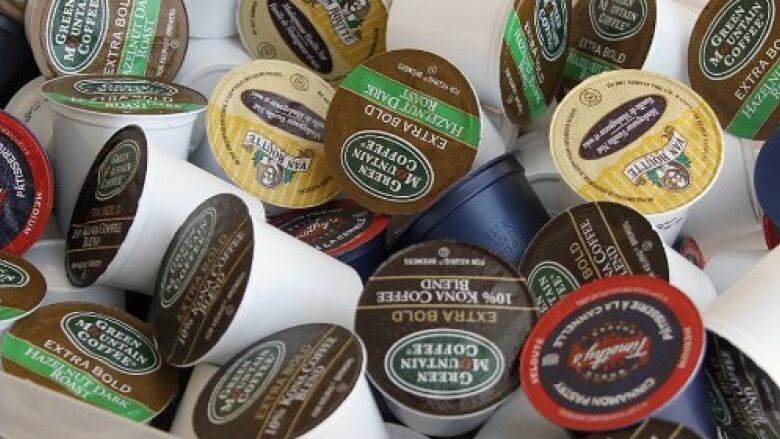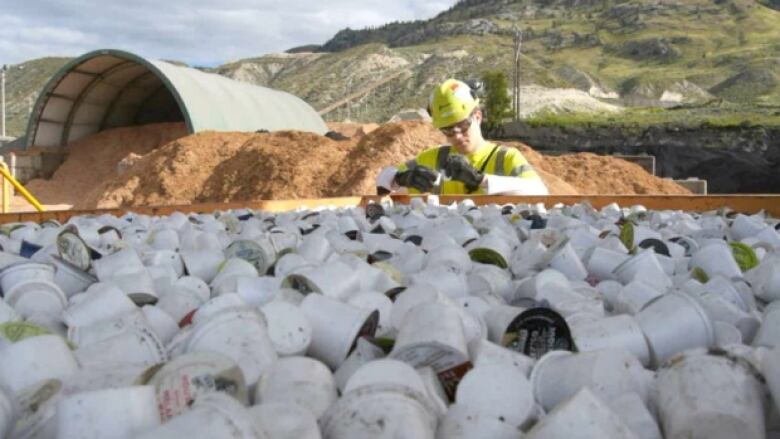Toss all coffee pods into the black bin, says IWMC
'It is our hope as this evolves that somehow these items will be maybe colour coded'

Island Waste Management Corporation is encouraging people to toss their coffee pods in the black bin, whether they're compostable or not.
Even if people are ditchingpods that arebiodegradable, they'requite smalland it's becoming more difficult for collectorsto spot what is compostable and what isn't,says IWMC CEOGerry Moore.
- Keurig K-Cups now recyclable in Metro Vancouver, if you do the work
- Bridgehead's compostable coffee pods can't go in green bin
"The biggest issue for us is that there's a wide variety of different products that are on the market," he said.
"Some of them are truly certified compostable, others are not, and still others are the standard non-recyclable, or non-compostable product."
It is our hope as this evolves that somehow these items will be maybe colour coded or coded better.Gerry Moore
What's also confusing, he added, is that some podsmay have bothcompostable parts and plastic which forces people to tear them apart orthrow them in either bin.
And because they're not easily identifiable by collectors, Islanders may run the risk of havingtheir load rejected if they're in the green bin, he added.
All coffee podsto go in the waste
He said it's better thatbiodegradablewaste is going into landfill rather than plastic waste going into the compost.

Although Islanders are becoming more conscious of recycling and waste management, he said, IWMC is asking Islanders to keep the pods in the black bin until the market changes.
- K-Cupcreator John Sylvan regrets inventing Keurig coffee pod system
- Coffee pod sales slip as environmental concerns rise
"It's a market that probably will evolve but right now it is very difficult to tell even if you're educated, as to what ones should be in compost and what ones shouldn't," he said.
"It is our hope as this evolves that somehow these items will be maybe colour coded, or coded better, so that on a visual inspection by facilities that processthemand contractors and drivers ... they can tell more easily as to what should be where."
- MORE P.E.I. NEWS |Road to the Roar last shot at Olympic trials
- MORE P.E.I. NEWS |'We should've done better': Maritime Electric apologizes for traffic mess
With files from Laura Chapin












_(720p).jpg)


 OFFICIAL HD MUSIC VIDEO.jpg)
.jpg)



























































































